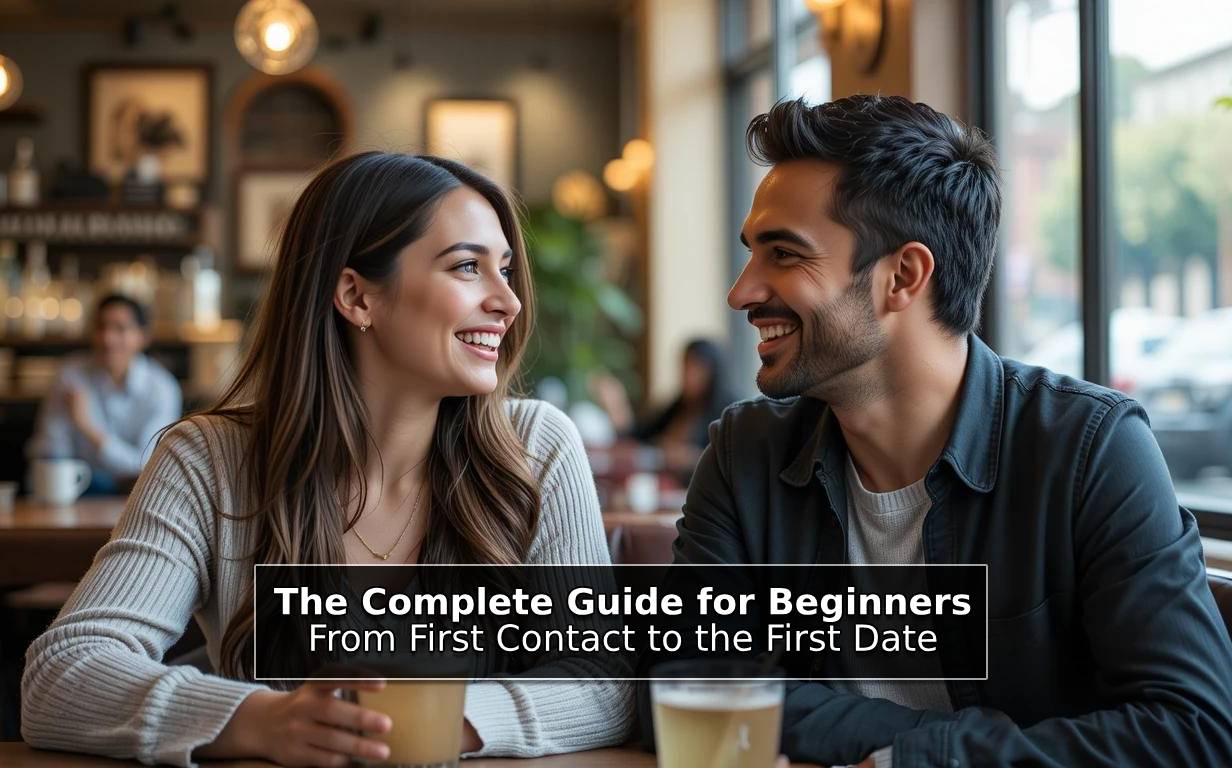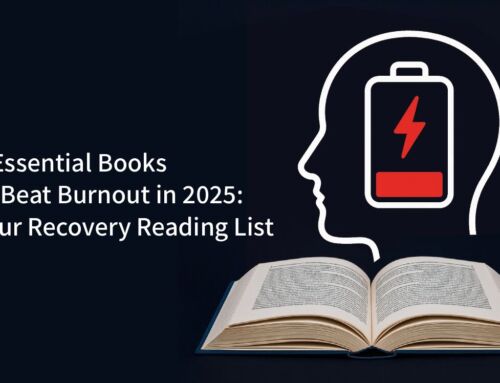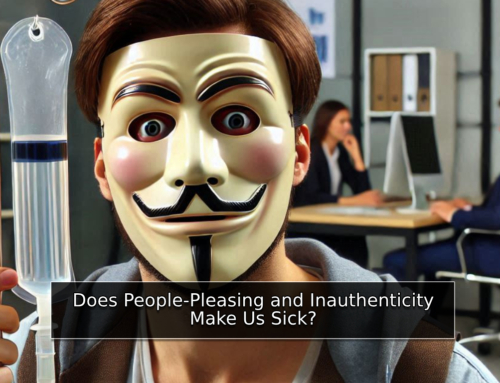The Complete Guide for Beginners: From First Contact to the First Date
How to Survive (and Enjoy) Opening a Conversation and the First Meeting
John is frustrated. He's been single for a long time, and he's actually seen a few girls he really liked. But again, he couldn't bring himself to start a conversation with them. 'I have nothing to say,' he thought, 'I'll probably look ridiculous. Who am I anyway? She seems too good for me…' As usual, he returns home alone, feeling a heavy feeling of missed opportunity.
Does this feeling sound familiar? The feeling that you want to connect with someone, but something stops you? The fear of rejection, embarrassment, or insecurity can make it difficult for us to approach others. This post is designed to give you practical tools, from the perspective of a Cognitive-Behavioral Therapy (CBT/ACT) therapist, to improve your ability to create authentic connections, from the first step to the first date.
Social Cues: Body Language Speaks, and the Voice Completes the Picture
Vanessa Van Edwards researches the field of social cues in depth. She emphasizes that beyond words, our body language and tone of voice send powerful messages. Here are some important points:
- Eye Contact: Eye contact is crucial, but it's important that it be natural and not staring. A fleeting glance and a smile can create openness. "The eyes are the window to the soul" – a well-known saying that illustrates the power of the gaze. It is important to avoid staring or shifting your gaze too frequently, which may be interpreted as disinterest or insecurity.
- Smile: A genuine smile, which involves the muscles around the eyes (Duchenne smile), conveys warmth and approachability. Studies show that a smile is contagious and has a positive effect on the atmosphere. A fake smile, on the other hand, can be perceived as inauthentic.
- Hand Gestures: Folded arms convey closure, while open and relaxed hands convey openness and confidence. It is important to avoid nervous movements such as tapping or playing with hair. Moderate and purposeful hand gestures can add interest to the conversation.
- Posture: An upright but relaxed posture conveys self-confidence. A slumped posture may convey insecurity or disinterest.
- Tone of Voice: A monotonous tone of voice can be boring, while a varied tone of voice with intonation conveys interest and vitality. It is important to speak in a clear voice and at a moderate pace, and to adjust the volume to the situation. A low and soft tone of voice can create intimacy, while a high and loud tone of voice can convey excitement or anger.
Beyond Words: What to Talk About? Concrete Examples
Starting a conversation can be simpler than it seems. Here are some ideas with examples:
- Simple Start:
- Comment on the environment: "What a nice cafe, I haven't been here before." or "This exhibition is really interesting, what did you think of the works?"
- Question about a shared event: (At a party) "Do you know the host? How do you know each other?" or (At a conference) "The previous lecture was really interesting, what did you take away from it?"
- Sincere compliment: "I liked your style." (It is important that it be sincere and not forced) or "You have a lovely smile."
- Active Listening:
- After the other person has told you about a hobby, you can ask: "That sounds really interesting, how did you get interested in it?" or "What is the most challenging thing about this hobby?"
- Self-Sharing:
- If the other person told you about a trip, you can share a short story about a similar trip you took. "I was also once in… and I experienced…"
- Dealing with Silence:
- Instead of being stressed by the silence, you can say: "So what else interests you?" or smile and say: "I'm enjoying the conversation."
First Date: Creating a Pleasant Atmosphere – Examples and Emphasis on Body Language and Tone of Voice
A first date is an opportunity to get to know each other in depth. Here are some tips with examples and emphasis on body language and tone of voice:
- Choosing a Place: Choose a place that allows for relaxed conversation, such as a quiet cafe or a park. Avoid places that are too noisy or those that require too much intensive activity (such as a movie at the cinema on a first date).
- Open Questions: Ask questions that encourage conversation, such as "What do you like to do in your free time?" or "What is important to you in life?". Avoid overly intrusive questions at this stage.
- Personal Sharing: Share a little about yourself, but be careful not to take over the conversation. For example, if you are asked about work, you can say: "I work in… and it challenges me because…", and then return the conversation to the other side: "And what do you do?".
- Humor: Light humor can break the ice and create a pleasant atmosphere, but it is important to avoid cynical or offensive humor.
- Ending the Date: At the end of the date, it is important to express your feelings honestly. If you enjoyed it, say so. For example: "I really enjoyed getting to know you." or "I had a great time talking to you." It is also important to clarify your intentions for the future, if any. For example: "I would love to meet again."
- Body Language on a First Date:
- Sitting: Sit in a relaxed, but not too relaxed, manner. Avoid slouching or crossing your arms, which may convey disinterest.
- Touch: Gentle and brief touch, such as a light touch on the hand or shoulder, can create intimacy, but it is important to do so carefully and only if it seems that the other person is interested.
- Facial Expressions: Pay attention to your facial expressions. Smiling, eye contact and nodding convey interest and listening.
- Active Listening: Turn your body towards your conversational partner, maintain eye contact and respond to their words with nods and short verbal responses. This conveys that you are listening and interested.
- Tone of Voice on a First Date: Pay attention to your tone of voice. Try to speak in a calm, pleasant and attentive tone. Avoid speaking too fast, monotonously or too loudly. It is important to adapt the tone of voice to the situation and try to convey positivity and interest. Listen also to the tone of voice of the other person and try to understand the messages they are conveying.
CBT and ACT: Tools for Dealing with Negative Thoughts
Many times, the difficulty in creating connections stems from negative thoughts that hold us back. Thoughts like "I'm not interesting enough," "They won't like me," or "I'll look stupid" can paralyze us and prevent us from taking the first step. Cognitive Behavioral Therapy (CBT) and Acceptance and Commitment Therapy (ACT) offer effective tools to deal with these thoughts:
- Identifying Negative Thoughts: The first step is to become aware of the negative thoughts that arise in social situations. Try to notice what thoughts go through your head when you think about approaching someone or during a date.
- Challenging Negative Thoughts (CBT): CBT teaches us to challenge the validity of these negative thoughts. Ask yourself: Is there real evidence to support this thought? Are there other ways to interpret the situation? Often, we find that these thoughts are exaggerated or based on assumptions.
- Accepting Negative Thoughts (ACT): ACT takes a slightly different approach. Instead of trying to eliminate negative thoughts, ACT teaches us to accept them as part of the human experience. The goal is to reduce the power these thoughts have over us and to focus on our values and goals.
The Impact of Core Beliefs: Not Just Identification, but Also Coping
Past experiences, traumas, or significant relationships can influence our core beliefs. Negative beliefs about ourselves ("I'm not good enough") can make it difficult to create connections. CBT/ACT therapy can help not only identify these beliefs, but mainly in:
- Understanding the Impact: Understanding how these beliefs affect our current behavior and thoughts, especially in social situations.
- Developing Psychological Flexibility: Learning tools to cope with these beliefs in a way that does not limit you. For example, if you believe "I'm not interesting," you can learn to observe this thought from a distance, recognize it as part of your experience, but not let it dictate your behavior. You can choose to approach people anyway, with the understanding that the thought is just a thought, not a fact.
Key Principles in CBT and ACT:
In addition to addressing negative thoughts, both CBT and ACT emphasize two important principles that can significantly aid in building connections:
- Focusing on Values: Both CBT and ACT emphasize the importance of focusing on our values. What is important to you in relationships? What kind of person do you want to be? By focusing on your values, you can act in a way that is consistent with them, even when negative thoughts arise. This helps you move towards what truly matters to you, rather than being controlled by fear.
- Exposure: One of the most effective ways to overcome social anxiety, which often underlies difficulties with dating and making connections, is through gradual exposure to social situations. Start with small steps, such as initiating a conversation with a stranger in a low-pressure environment, and gradually increase the difficulty. With practice, you will become more comfortable and confident. This principle encourages taking action despite fear, building resilience and self-efficacy.
Research and Support:
Many studies support the effectiveness of CBT and ACT in improving social skills and coping with social anxiety. For example, studies have shown that CBT can help identify and change negative thought patterns that hinder the creation of connections. ACT, on the other hand, focuses on developing acceptance of feelings and emotions, and on focusing on actions that are consistent with personal values.
In summary
Creating authentic connections and enjoying the first date is a skill that can be developed. By using the tools of CBT and ACT, focusing on social cues, and practicing conversation skills, you can overcome your fears and create meaningful relationships. Remember, everyone experiences moments of doubt and insecurity, but the important thing is not to let these feelings prevent you from pursuing the connections you desire
Note: This information is for informational purposes only and is not a substitute for professional medical or psychological advice. The information presented here is based on scientific research and clinical experience but does not constitute a recommendation for specific treatment. Each individual is unique, and the most appropriate treatment will be determined by a healthcare professional.
Contact now
Ready to take the first step towards positive change? Contact me now for more information and to schedule an appointment. Whether you prefer in-person sessions in Tel Aviv or virtual meetings via Zoom, my integrated approach of Cognitive Behavioral Therapy (CBT) and Acceptance and Commitment Therapy (ACT) can help you break free from struggles and find greater fulfillment in life. I'll be sure to get back to you as soon as possible. Let's embark on this transformative journey together!
Call Whatsapp 052-2325511
Or fill out the following form.
Can ACT and CBT assist you or your loved ones?
Welcome to my therapy practice, where I offer a powerful combination of Cognitive Behavioral Therapy (CBT) and Acceptance and Commitment Therapy (ACT) techniques. CBT is a goal-oriented, short-term approach that's highly effective for anxiety, depression, low self-confidence, and more. ACT complements CBT, helping you navigate life's challenges and find fulfillment and authentic, happier life.
If you're struggling with anxiety, depression, low self-image, or facing setbacks, CBT combined with ACT may be the key to transforming your life. Break free from the struggle and take a step towards a happier, more fulfilling life.
Contact me today to schedule an appointment and embark on your journey of positive change. You don't have to face it alone; I'm here to support you every step of the way. Let's work together to create the life you deserve!





